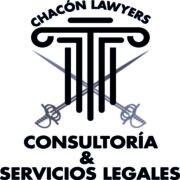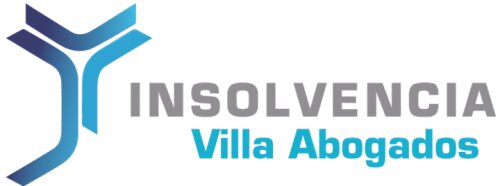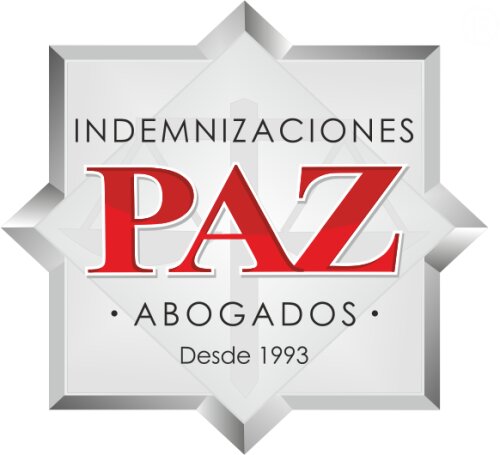Best Public-Private Partnerships (PPP) Lawyers in Colombia
Share your needs with us, get contacted by law firms.
Free. Takes 2 min.
Or refine your search by selecting a city:
List of the best lawyers in Colombia
About Public-Private Partnerships (PPP) Law in Colombia
Public-Private Partnerships (PPP) in Colombia are collaborative agreements between government entities and private sector companies designed to finance, develop, operate, and maintain infrastructure or provide public services. PPPs offer an avenue for leveraging private expertise and investment in projects that benefit the public, such as roads, airports, schools, and hospitals. The Colombian legal framework for PPPs is robust, providing clear guidelines and regulations to ensure transparency, sustainability, and value for money for both public and private partners.
Why You May Need a Lawyer
Legal advisors play an essential role in the complex field of PPPs, as these projects involve intricate contracts, regulatory compliance, and stakeholder management. Common situations where you may need legal help include:
- Reviewing and negotiating the terms of a PPP contract to ensure rights and obligations are balanced and clearly defined
- Conducting legal due diligence for both public and private participants
- Assisting with bidding and selection processes to comply with government regulations
- Navigating disputes related to project execution, delays, or changes in scope
- Advising on risk allocation between the parties, including financial, operational, and political risks
- Ensuring environmental, social, and legal compliance according to Colombian law
- Advising on modifications or early terminations of PPP contracts
- Providing counsel in case of restructuring or refinancing of PPP projects
Because PPPs typically involve long-term commitments and substantial financial investments, expert legal support is indispensable to protect interests and enable successful project delivery.
Local Laws Overview
The Colombian PPP legal regime is primarily governed by Law 1508 of 2012, which outlines processes, requirements, and safeguards for PPP undertakings. Some key aspects include:
- Definition and Scope: Law 1508 clearly defines what a PPP project is and establishes the minimum requirements and applicable sectors, such as transport, energy, water, health, and education infrastructure.
- Selection and Bidding Process: Public tenders are mandatory, ensuring transparency and fair competition. There are opportunities for unsolicited proposals, but strict rules apply to their admission and evaluation.
- Risk Allocation: Colombian law requires a clear division of risks associated with PPP projects, aiming to assign each risk type to the party best able to manage it efficiently.
- Project Financing: PPPs require mechanisms to ensure financial closure, often involving mixed sources of funding and government guarantees or support, subject to statutory limitations.
- Supervision and Compliance: Government agencies oversee project implementation and monitor compliance with legal, environmental, social, and financial obligations.
- Dispute Resolution: Contractual disputes can be resolved through arbitration, conciliation, or judicial proceedings, as stipulated in PPP agreements and under Colombian law.
Additionally, other statutes and regulations, such as Law 80 of 1993 (on public procurement) and Law 1150 of 2007 (on the modernization of procurement procedures), complement the PPP-specific framework.
Frequently Asked Questions
What is a Public-Private Partnership (PPP) in Colombia?
A PPP is a long-term contract between a public authority and a private company where the private party invests in, builds, operates, or maintains infrastructure or public services, sharing risks and rewards as outlined by Colombian law.
Which law governs PPPs in Colombia?
The primary law is Law 1508 of 2012, backed by regulations from the National Infrastructure Agency and additional statutes regarding public procurement.
What sectors are eligible for PPP projects?
Common sectors include transportation, water and sanitation, energy, health, and education. Other infrastructure projects of public interest may also qualify under Colombian law.
Can private companies submit PPP proposals to the government?
Yes. Private entities can submit unsolicited proposals. However, these must meet stringent requirements and are subject to a competitive bidding process if the government decides to proceed.
How are PPP projects selected?
PPP projects are usually chosen through transparent public tenders. Selection criteria include technical and financial feasibility, value for money, risk allocation, and compliance with legal standards.
What are the main risks in PPP contracts?
Risks include construction delays, operational failures, demand and revenue fluctuations, regulatory changes, environmental issues, and political or legal uncertainties. Risk allocation is a core part of PPP negotiations.
How are PPP projects financed?
Financing can involve a mix of private capital, bank loans, government contributions, and sometimes multilateral or development bank funding. The financial structure must ensure project viability and compliance with public finance rules.
What government bodies oversee PPPs?
The National Infrastructure Agency (Agencia Nacional de Infraestructura - ANI), Ministry of Transport, and Ministry of Finance are key oversight agencies, depending on the sector and project scope.
What happens in the case of a dispute between parties?
Disputes can be resolved through arbitration, mediation, or the judicial system, as specified in the PPP contract and applicable law.
Can PPP contracts be modified or terminated early?
Yes, but only under exceptional circumstances and in accordance with Colombian law. Amendments and early terminations must follow due process and may involve compensation for affected parties.
Additional Resources
For further information, guidance, or regulatory updates on PPPs in Colombia, consider consulting the following resources:
- National Infrastructure Agency (Agencia Nacional de Infraestructura - ANI): The primary governmental authority for infrastructure PPP projects.
- Ministry of Finance and Public Credit (Ministerio de Hacienda y Crédito Público): Provides oversight and financial guidelines for PPPs and public investment.
- Ministry of Transport (Ministerio de Transporte): Relevant for transport sector PPPs, including roads, airports, and ports.
- Contraloría General de la República: National oversight and control agency for public sector contracts.
- Local chambers of commerce and legal aid societies: Provide access to lawyers specialized in PPP law and public procurement.
- Colombian Association of Infrastructure (Cámara Colombiana de la Infraestructura): Offers information and support regarding best practices in PPP projects.
Next Steps
If you require legal assistance with a PPP project in Colombia, consider the following steps:
- Define your objectives and gather all relevant documents, such as project proposals, draft contracts, or procurement notices.
- Consult with a lawyer specialized in PPP and public procurement law. Early legal advice helps prevent issues and optimize project structuring.
- Assess potential legal risks and compliance needs based on the sector and project specifics.
- Engage in preliminary discussions with relevant government agencies if applicable.
- Stay informed about regulatory updates and best practices by utilizing the recommended resources and organizations.
Experienced legal support is vital for successful PPP undertakings, from project conception through completion. Taking proactive steps and seeking expert advice will help ensure compliance, manage risks, and achieve your PPP goals in Colombia.
Lawzana helps you find the best lawyers and law firms in Colombia through a curated and pre-screened list of qualified legal professionals. Our platform offers rankings and detailed profiles of attorneys and law firms, allowing you to compare based on practice areas, including Public-Private Partnerships (PPP), experience, and client feedback.
Each profile includes a description of the firm's areas of practice, client reviews, team members and partners, year of establishment, spoken languages, office locations, contact information, social media presence, and any published articles or resources. Most firms on our platform speak English and are experienced in both local and international legal matters.
Get a quote from top-rated law firms in Colombia — quickly, securely, and without unnecessary hassle.
Disclaimer:
The information provided on this page is for general informational purposes only and does not constitute legal advice. While we strive to ensure the accuracy and relevance of the content, legal information may change over time, and interpretations of the law can vary. You should always consult with a qualified legal professional for advice specific to your situation.
We disclaim all liability for actions taken or not taken based on the content of this page. If you believe any information is incorrect or outdated, please contact us, and we will review and update it where appropriate.
Browse public-private partnerships (ppp) law firms by city in Colombia
Refine your search by selecting a city.















